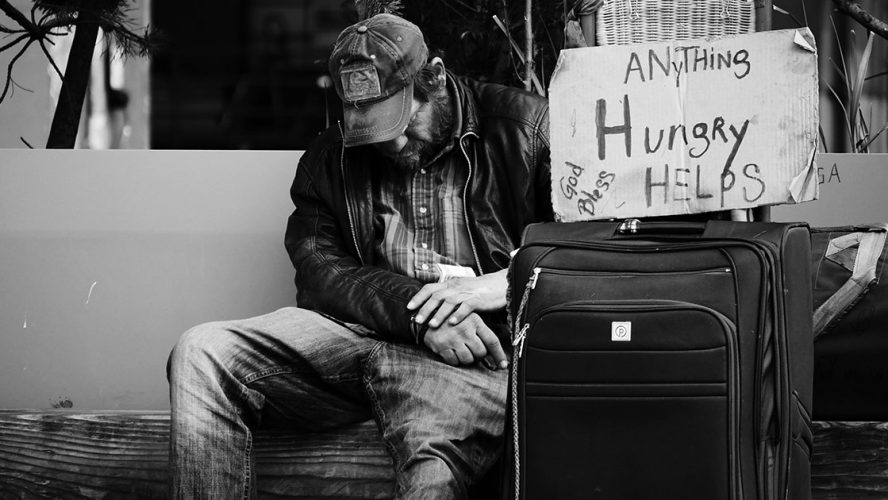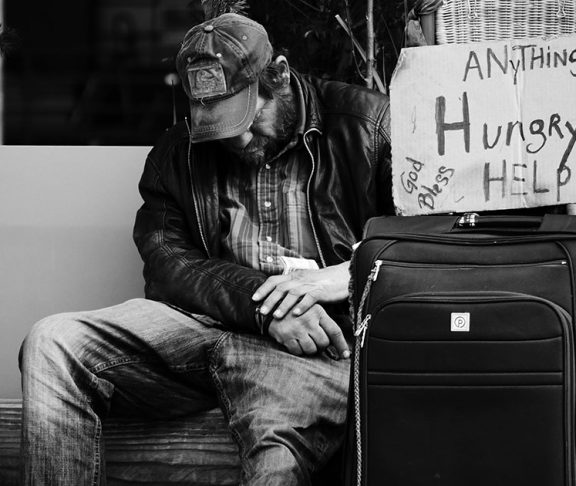
Eric Tars
Legal Director, National Law Center on Homelessness & Poverty

Maria Foscarinis
Executive Director, National Law Center on Homelessness & Poverty
These remarkable statistics not only show how unaffordable and inaccessible housing is, but they also demonstrate how government intervention is making the affordable housing crisis worse. Indeed, it seems our local elected officials believe that if they only incentivize development of high-end housing, they will only attract high-end renters to their cities, growing their tax base. The dark consequence of these high-end-only strategies is they force their middle- and working-class residents, not to mention low-income and elderly and disabled persons on fixed incomes, to double- or triple-up and spend upwards of 50% of their income on housing. Many residents are just one missed paycheck, one unexpected car repair or one medical emergency away from homelessness.
We’re seeing this ring true as reports of homeless encampments have exploded by more than 1300% over the past decade, rising in every state. Renters have been squeezed to their breaking point and are ending up sleeping in their cars, RVs and in shanty communities on the periphery of our towns and cities.
But too often, rather than acknowledge that the community’s choice to prioritize high-end housing over affordable caused this problem, officials, businesses and housed residents often put blame on those experiencing homelessness for their choices. Based on this false narrative, communities criminalize homelessness — making it a crime to sleep or rest on the street, to shelter oneself or to ask for donations — rather than addressing the underlying need for housing that forces people to be on the streets in the first place. Criminalizing ordinances have increased across the country by double- or triple- digit percentages over the same 10 years that we have seen the growth in encampments.
Tragically, studies show affordable housing actually costs two- to three-times less than cycling people through the criminal justice system. TheNational Law Center on Homelessness & Poverty partnered with hundreds of national and local organizations and launched the Housing Not Handcuffs Campaign in 2016 to make a case to stop criminalizing people for taking care of their basic human needs and instead, reinvest those funds into ensuring everyone can enjoy affordable, accessible housing as a human right, not simply a commodity that benefits the few.
Making housing a right does not mean that every person would get a single-family home with a white picket fence free of charge. The means to ensuring the human right to housing includes universal rental vouchers, a renter’s tax credit similar to the mortgage interest deduction granted homeowners, inclusionary zoning or market incentives and mandating a right to counsel in housing court. But recognizing housing as a right would mean that government could be held accountable for failing to meet the basic needs of its citizens and that meeting people’s needs would be elevated over ensuring developers’ profits as government’s highest duty.
Over the past few years, we have seen changes as more elected leaders have begun talking about healthcare as a human right and debating how to build the policies to guarantee it. We need to talk about housing as a human right as well, in order to support the scale of policies needed to reverse the runaway market’s push of more and more of our fellow citizens out of their homes and on to the streets.
Eric Tars, Legal Director & Maria Foscarinis, Executive Director, National Law Center on Homelessness & Poverty, [email protected]

